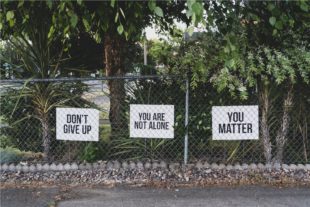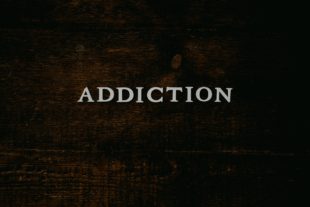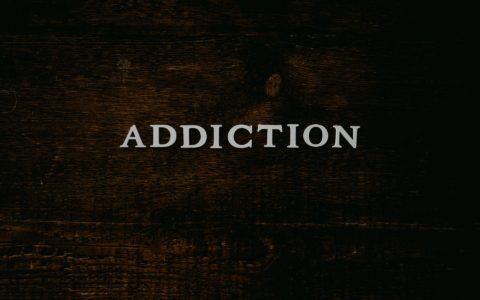Reflections on Human Destructiveness: An Interview
Christian Counselor Spokane
The following article is the transcript from an interview with Dr. Brent Potter, originally aired as: CBS Radio A Moment of Change Interviews Dr. Brent Potter: An Author’s Research and Intimate Reflections on Human Destructiveness.
This is A Moment of Change with Sherry Gaba and Cathleen O’Connor.
Sherry Gaba, celebrity psychotherapist, author and life coach.
Cathleen O’Connor has a doctorate in metaphysical counseling, is an author, dream analyst, an intuitive life coach with a focus on work-life balance and a connection expert.
Your moment of change begins now.
 Cathleen O’Connor: Hi welcome everyone. Welcome to A Moment of Change. This is Cathleen O’Connor. Sherry is on her way and held up but she will be with us as soon as she can.
Cathleen O’Connor: Hi welcome everyone. Welcome to A Moment of Change. This is Cathleen O’Connor. Sherry is on her way and held up but she will be with us as soon as she can.
Dr. Potter is a psychotherapist with 20 years of direct clinical service. Brent is the author of numerous articles whose topics include innovative and effective mental health care models, analytical psychology, humanistic psychology, existential – oh this is a good word phenomenology so Brent you will have to make sure I said that right– psychoanalysis, the psychotic registry of the mind, character and personality disorders, chemical dependency and child or adolescent mental health concerns. Wow that’s quite a background. His first book is called Elements of Self-Destruction and it’s out via Karnac Books. Welcome Brent. I hope I got all those words right.
Brent Potter: Yeah, not bad. It’s a pleasure to be here. Thank you so much.
Cathleen O’Connor: It’s a pleasure to have you with us. You know we like to ask our guests always to talk a little bit about their own journey of personal change and transformation. So do you have a story about a moment of change in your own life that was significant that you can share with our listeners?
Brent Potter: I probably have more than one such story, but I was thinking. I remember getting a call right after January 20, 2007 that my brother had died. I suspected then and I believe now that he committed suicide by overdose on antidepressants and opioid medication. This drew me even further into thinking about the destructive aspects of the mind at that time but I think I began distancing myself from philosophical and academic theoretical matters that in my opinion didn’t really address directly human experience.
I hope that the experience about more compassion, more open-hearted towards others suffering from distressing states of mind. The impact to these things really does ignore should I go away. I found that the experience is like a constant meditation point from which I am always feeling new inside that hopefully will be of use to others. That was a very transformative experience for me in a lot of ways.
Cathleen O’Connor: Brent how old were you when this happened?
Brent Potter: Oh goodness. In my early 30s. My brother was 22 years old.
Cathleen O’Connor: Oh my. Okay.
Brent Potter: Yeah.
Cathleen O’Connor: Yeah this is– I can see, you know, this has come into your work in such an important way also and so more often I think the traumatic experiences we have in our life guide us into the type of healing work we eventually do with others.
Brent Potter: Yeah I found the experience really– I had already worked from phenomenal logical or humanistic perspective and I found that that really kind of led me to the even more– strive to be even more compassionate with others with whom I work, and really try to understand deeper, you know, what it means suicide, destructiveness, self-destructiveness. Maybe even outside of the things that we get is just kind of academic that we learn from books.
 Cathleen O’Connor: Right, right. Can you define a little bit for our audience what you mean when you talk about destructiveness and why it’s so important for us to understand it in today’s society?
Cathleen O’Connor: Right, right. Can you define a little bit for our audience what you mean when you talk about destructiveness and why it’s so important for us to understand it in today’s society?
Brent Potter: Sure. Well, I think that when I first started working on this book I was studying the DSM, that’s the diagnostic manual. And I was studying it for like comprehensive, for my doctorate. And I was trying to think what the essence is or what are these diagnoses that are in here. It occurred to me that a lot of them were obsessive and compulsive that they had kind of a repetitive nature to them. But I thought more about that and it was like no something can be both obsessive and compulsive and not be diagnostically necessary. I thought more about it and it turned out it was like no it really has to have the quality of destructiveness to it because there are lots of things that are even applauded that are done obsessively and compulsively like going in a graduate school, going to work day after day and really focusing and doing things repetitively but unless they have the quality of destructiveness to it, either self-destructive or self-destructiveness projected outwards or to others then it’s really considered problematic. So that kind of scratched the surface and then I began looking more and more at it and looking at different ways that the individual mind self-destructs into a very distressing state.
And also looking it more at broader social kind of things and historical things that are also self-destructive prophesies so both on individual and collective levels. What was kind of interesting is that while I was writing the book later on then I really don’t watch the news or TV a lot but anytime there was an edit I would just pop open a newsfeed and just start writing about whatever I saw there. So in the foreword it happened to be on the day that some guy in Florida took drugs, I guess it’s called basalt and stripped themselves naked and then proceeded to the street and stripped the homeless naked and began biting his face. So it’s like any time that I would want to write about it’s just so prevalent that I could just open up a window and then just start talking about how some of these things were manifesting in our society, it’s ubiquitous.
Cathleen O’Connor: Is there sort of a common I guess I don’t know what to call it condition or causative element to this particular type of destructiveness that you are describing?
Brent Potter: The more I researched it the more I found that it seems to have an addictive quality to it that there is something underneath that seems addictive. I will use example of like an individual mind. For example, it seems like a scene that emerged is that there is of course engagement with the world. Someone is engaging in the world and then something happened perhaps like a trauma or perhaps it’s a disappointment, someone’s let down and then the person kind of takes a step back from the world, takes a step back from that shared reality. And then as time goes on maybe there is another disappointment that occurs or the same disappointment kind of a reminder of something that happened previously and so then the person takes another step back. But in taking these steps back from the world they are not exercising the muscle, so to speak, that we need in engaging in reality all the time, the skills that we learned by engaging it. So this process becomes increasingly reliant upon the maneuverable way from the world which sort of atrophies that muscle of engaging with the world. So I see it along kind of a spectrum, you know, from something that can just be simple withdrawal all the way through psychotic states of mind or one can’t engage in reality anymore because here she doesn’t have the ability to.
Cathleen O’Connor: So I’m just thinking about, you know, my own work with my clients and my own family. I grew up in an alcoholic family for example where there wasn’t, you know, role models or the parenting where when something happened there was no way to talk about the feelings or any example of how we resolve conflict, how do we work through things. So those skills of resiliency weren’t there and, in my life, I turned to addictive substances to help me when I felt emotionally overwhelmed until I got myself into, you know, working with different therapists as I got to adulthood. So as a children I am just curious about the family, you know, the family system which I know is, you know, some are important in all of these types of discussions and the ability of the family to create a healthy emotional arena for feelings to be processed or for skills to be developed to cope with things especially because we all seem to be so busy all the time these days and I’m just wondering if you see in your practice that there’s an element where people just aren’t taking the time that it needs to really be present in the family to create the kind of environment where there is dialogue.
Brent Potter: Yeah, that speaks to a lot of different things, I mean obviously just looking at kind of our social conditions these days they are clearly just not conducive to parents being able to provide the kind of availability emotionally and otherwise to children. And what happens in that is a kind of injurious neglect or perhaps that whilst the parents themselves haven’t learned the skills, don’t understand the ways of being with their children that promotes that kind of environment. So it’s not a matter of moralism like good, bad, right and wrong. Sometimes people don’t know these things.
 So there are other things especially in the family system that complicates this. Something I see a lot in my work with people isn’t just the abjectly, let’s say alcoholic parents who’s abusive overtly, things like that, but there is kind of in family systems more subtle insidious confusing modes of communication, power dynamic, things like that that really takes a toll on the child’s mind in this kind of protracted stress.
So there are other things especially in the family system that complicates this. Something I see a lot in my work with people isn’t just the abjectly, let’s say alcoholic parents who’s abusive overtly, things like that, but there is kind of in family systems more subtle insidious confusing modes of communication, power dynamic, things like that that really takes a toll on the child’s mind in this kind of protracted stress.
So a lot of times it’s just that parents don’t know or they themselves are communicating so to speak what’s been taught to them and so it’s as if the distress just continues going from generation to generation. And then probably the most obvious example of the kind of dynamics I’m talking about would be substance dependence where there is an increasing reliance upon a substance that takes one away from more dynamic complicated differentiated ways of contending with reality.
Cathleen O’Connor: Yes. We’re going to have to go to our first break Brent but before we go to break just– would you just let our listeners know where can I find you on the web and where can they get the book.
Brent Potter: Oh, well, you can go to Google and just type in Elements of Self-Destruction. It will take you right to Karnac who is my publisher. And also Amazon and Barnes & Noble.
Cathleen O’Connor: Great. And we’re going to talk more with Dr. Brent Potter but right now this is A Moment of Change and we are going to break. masterpiece. Learn to combine the spiritual forces of the universe with recovery from any negative habit that is keeping you from living life fully.
Cathleen O’Connor: Welcome back everyone, welcome back. You are listening to A Moment of Change. This is Cathleen. We are talking with Dr. Brent Potter about his book Elements of Self-Destruction. And I’m thrilled to let you know that Sherry Gaba is back and is with us. Welcome Sherry.
Sherry Gaba: Hi Cathleen and hi, Dr. Potter. We had a little technical problem, and you know how that goes but I am here.
Brent Potter: Great.
Sherry Gaba: Yes. I was just saying that I understand you were talking about addition and sometimes being at the forefront of destructive behavior sometimes that being the impetus that causes people to engage in self-destruction or self-destructive habits, self-destructive actions. What would you say about that? A lot of our audience has struggle with addictions.
Brent Potter: Okay, thank you Sherry. I did not hear you earlier. Yes, I think there is an additive process underlying all of this and we are just kind of discussing briefly earlier, I think that that process actually happens on more of a societal level. I think that our society is very addicted in a lot of different ways and that makes it possible for the individual to take that up, but I think underneath all these self-destructive prophecies there is sort of movement, an increasing reliant upon older behavior, older ways of knowing and being in the world that makes it more and more increasingly difficult to contend with reality and the world and others. So the process is that there’s sort of a decreased ability to contend with the shared world and an increased reliance upon these pathways of knowing and being. So it’s like on a spectrum then the most concrete example of this is substance dependence whether it’s an increased dependence upon the lifestyle and the substance that’s being used and a decreased ability to be able to contend with the shared world but I think that this evidenced in either non-chemical situation, addictions in relationships, addictions to money, gambling, relationships, the list goes on.
Sherry Gaba: Yeah I was going to ask you what is it about people just going back from more pain. You know, we see people just going back for more and more. What is it going on subconsciously that they just, you know, sort of, you know, the understanding is that sort of reenacting something that they know is familiar but and yet it causes them so much pain. You know, what is that moment when they just finally get that moment of clarity and are like, I’m not going to go back for that anymore, that this isn’t working for me, and yet sometimes they just do go back. What’s that about and how can you help our listeners, you know, stop that pattern.
 Cathleen O’Connor: This is Cathleen again. There is also a dynamic I would think with people not only addicted to the past version of the partner who is no longer there but people can get addicted to the potential they see inside someone rather than the reality of who the person is. And I guess it’s part of the same process just a different way of still getting addicted to a representation of a person that isn’t real. Would you say that’s correct?
Cathleen O’Connor: This is Cathleen again. There is also a dynamic I would think with people not only addicted to the past version of the partner who is no longer there but people can get addicted to the potential they see inside someone rather than the reality of who the person is. And I guess it’s part of the same process just a different way of still getting addicted to a representation of a person that isn’t real. Would you say that’s correct?
Brent Potter: Oh, absolutely yeah. Becoming fascinated with the fantasy of who she is and I tried to include a little bit of that is I was kind of going off on this rift with that words like she completes me and I complete her, we are talking, we are together, we are engaged in projects together, we are going to take over the world or at least it feels like it. You know there’s kind of the sense of being in love or addicted to use your words to the fantasy of who she maybe and then moving through that. And then perhaps even if it’s based on fantasy and then the fantasy wears off or perhaps the partner here she becomes a different person qualitatively and then we are stuck again.
Sherry Gaba: Right, right. So for our listeners what are some of the– maybe three key things they need to think about or that they could do if they find themselves in these destructive patterns. What’s the first couple of steps?
Brent Potter: Okay. I think I can speak to that. By way of getting there I recently found an article kind of synchronistically on the internet. It said 60 years after the war ends two soldiers emerged from the jungle. Japanese soldieries apparently during World War II took flight into the wild. In 2005 the two men then in their 80s emerged from the jungle. They were afraid they were going to be court-martialed for desertion. They thought the war was still going on. For six decades the war was going on in their mind. Outside the world had moved on.
You know I’ve wondered about this how often are we and others like these soldiers in psychic reality. So I think one of the things to do, you know, it’s like if we are missing information or cannot accept information the first thing is to get connected. I always recommend, it’s really hard for someone to find their way out of their own circumstances so to get connected to the therapist or get connected to someone.
And then second is to become involved typically in community. I’ve found there are a lot of communities of like-minded people or who have experienced similar distress. Some people has found community, Psychiatric Survivors, they call themselves. They don’t like the way they’ve been treated in certain systems until they formed their own communities. So community is terribly important and also just reaching out and getting connected with some help.
Sherry Gaba: You know, I think that’s excellent advice. You know, when you said that word connection, I think that’s what people are missing that keeps them reenacting that sort of that traumatic bonding, you know, when you’re talking about destructive relationships and you go back for more of that trauma or that unhealthy hallucination or unhealthy denial of that person that really doesn’t exist and that is exactly what I was thinking. Now if you have something positive that you can sort of– that’s really what the 12-Steps of Fellowship was based on. And if that doesn’t work there are so many other communities out there there’s, you know, I mean we can go on and on about other communities like…
Brent Potter: The soldiers were like a good example just because, you know, for 60 years there was a whole reality that really only existed in their mind and sort of like being caught in the fantasy or the hallucination of this relationship thing or of halucinosis around substance dependence being, you know, something that’s a way out. If I just continue using the substance this way maybe it will work, maybe if I returned to the relationship this way or do this and that maybe it will work. So like there’s a missing of the information. There is a contact with the fantasy.
Sherry Gaba: So it’s really just crossing over so to speak and to like, they’re sort of in the middle of two worlds that it’s getting over to the new world in a way that is smooth and so they feel connected. You know, we actually just about out of time and so happy and, you know, was able to connect that again. Forgive me Dr. Potter but the technology just was not working in my favor this afternoon. Please tell us how we can find your book and I know that you lecture and do workshops, where can we find your website maybe make an appointment to do a Skype session or a therapy session.
Brent Potter: Well thanks. No reason to apologize for being a little bit late. I am really just grateful to be invited. It’s exciting talking about this. I think we could talk about it for quite a while. So in regard to my book just Google Elements of Self-Destruction. It will take you to Karnac, my publisher, Amazon or Barnes & Noble.
Sherry Gaba: Fantastic. It was great having you and we’re just wonderful. This is A Moment of Change. This is Sherry Gaba and I am here with Cathleen O’Connor.
References
Potter, B. (2012). CBS Radio A Moment of Change Interviews Dr Brent Potter: An Author’s Research and Intimate Reflections on Human Destructiveness Copyrighted unpublished manuscript.
Potter, B (2013). Elements of Self-destruction. London: Karnac Books
“Encouragement”, Courtesy of Dan Meyers, Unsplash.com, CC0 License; “Watching out the window.”, Courtesy of Taylor Deas-Melesh, Unsplash.com, CC0 License; “Addiction”, Courtesy of Annie Spratt, Unsplash.com, CC0 License; “Outstretched Hand”, Courtesy of Marcos Paulo Prado, Unsplash.com, CC0 License





